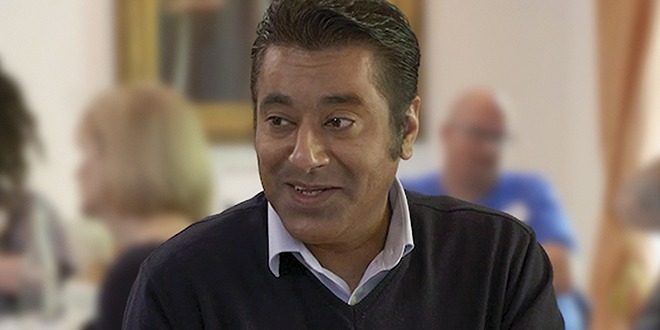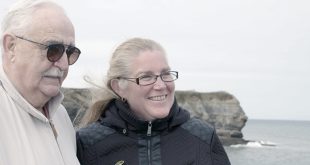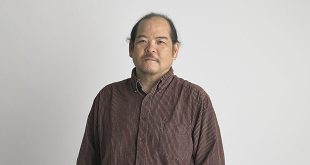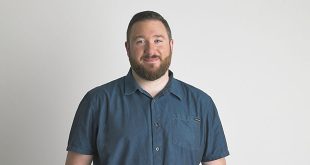People with type 2 diabetes write back to their younger selves, to share personal insights and reflect on their experience of living with diabetes and starting on insulin therapy. In this post, Hussain reflects on living with diabetes.
Hussain grew up following an academic track in his schooling, while secretly nursing a different passion: flying. He loved the idea of taking to the air from the time he was young. Yet, it wasn’t until he was in his early 20s that he began to act on a dream of becoming a commercial airline pilot. While studying for a law degree in London, UK, he logged hours flying aircraft on the weekends and worked at Gatwick airport in the summers to finance the flying lessons and his education.
That was also the time when he began to notice how extremely tired he felt, sometimes falling asleep during lectures. After a urine test seemed to indicate that nothing was wrong, Hussain asked for a blood test that showed that he was on the border of having type 2 diabetes. He felt devastated as he knew this could impact his future. Nevertheless, he tried to control his pre-diabetes through diet while continuing to pursue aviation. At last, after finishing his academic studies he completed the hours for a full commercial pilot’s licence along with the necessary exams. He became a pilot for an international airline at age 27. “I felt so happy that I was doing something that I really enjoyed and was meeting people from all over the world,” Hussain recalls.
He had only three years to enjoy his achievement. After controlling his blood sugar through diet and tablets, at age 29 blood tests signalled that Hussain’s sugar levels weren’t falling, and his doctor advised him to go on insulin. This development meant the end of his aviation career because at the time, the UK’s Civil Aviation Authority did not allow commercial airline pilots to fly while using insulin. He wouldn’t just have to give up his job, but his passion.
“When told that I would have to use insulin for life, I was shocked, depressed and desperately researched any alternatives to injections,” he remembers.
At the same time, Hussain began to notice that the vision in his left eye was weakening. He had to squint to focus and reading small print became difficult. A visit to a London eye hospital confirmed the change. The blood vessels were bursting and growing abnormally as a direct consequence of prolonged elevated blood sugar levels. Hussain, now 40, is writing to himself at about 30, upon learning that he had diabetic vision loss.
Dear Hussain
You have had what you thought was devastating news once before in your life – when you were diagnosed with diabetes. But now you are really crushed. You are being told you have to take insulin for life. And your vision – a precious possession you could never imagine doing without – is in jeopardy. Between the loss of your pilot’s licence and your vision, it feels like death, like you have lost something that will never return. It feels like the diabetes is winning and taking over your life.
For someone who was borderline, then took tablets, then took insulin and now faces vision loss, it is clear that strong willpower and better medical education was needed at the outset. You began insulin too late in life and now drastic action is needed as your blood sugar levels have been too high for too long.
It has shaken you, as it would anybody. But the key achievement is to finally, finally, accept it and live with it. Only you can really control it. Face it; this isn’t something that is going to go away. You need to combine your will power with the right amount of insulin to control the sugar levels. The consultants can advise and help; however, it is you that will have to control and act.
Your past was in your own hands. So is your future. You will return to law and business. And you’ll find that with a new maturity about your responsibility will come a new sense of mission. You will begin to speak about your experience to others, especially the young. You will begin to think about setting up a charity specially aimed at educating those at risk of diabetes and raising funds for research. This is a powerful way to transform a difficult life passage into something good, something that will help others.
You can do it,
Hussain
This story has been edited by Ellyn Spragins and shared with support from Novo Nordisk Canada. The views and opinions expressed are not representative of Novo Nordisk, and should not be considered treatment advice. Novo Nordisk has permission to share this letter and included personal details.
 Diabetes Care Community Learn, connect and care
Diabetes Care Community Learn, connect and care




